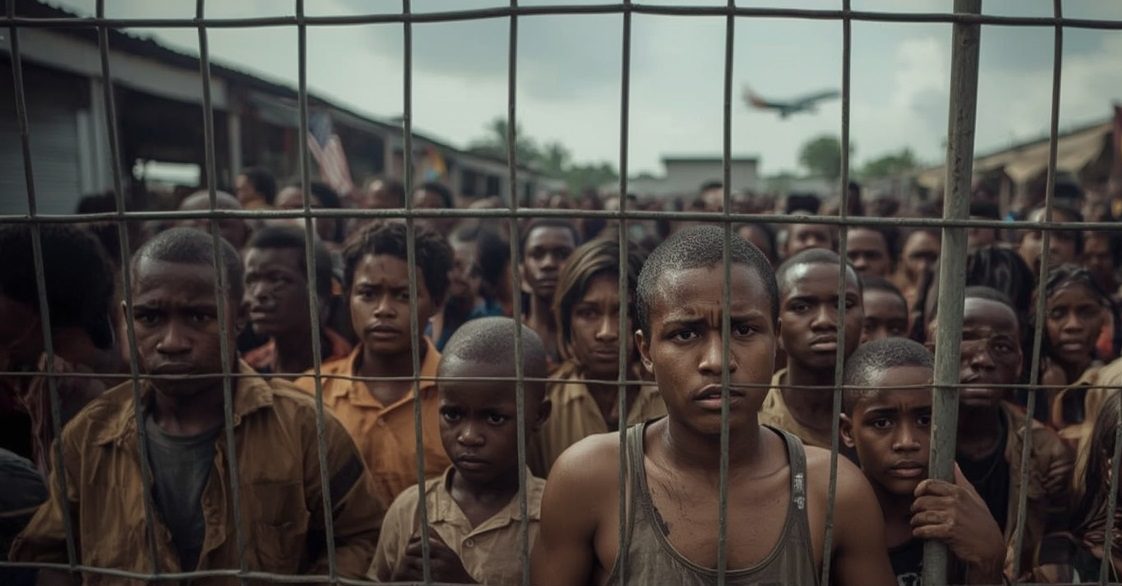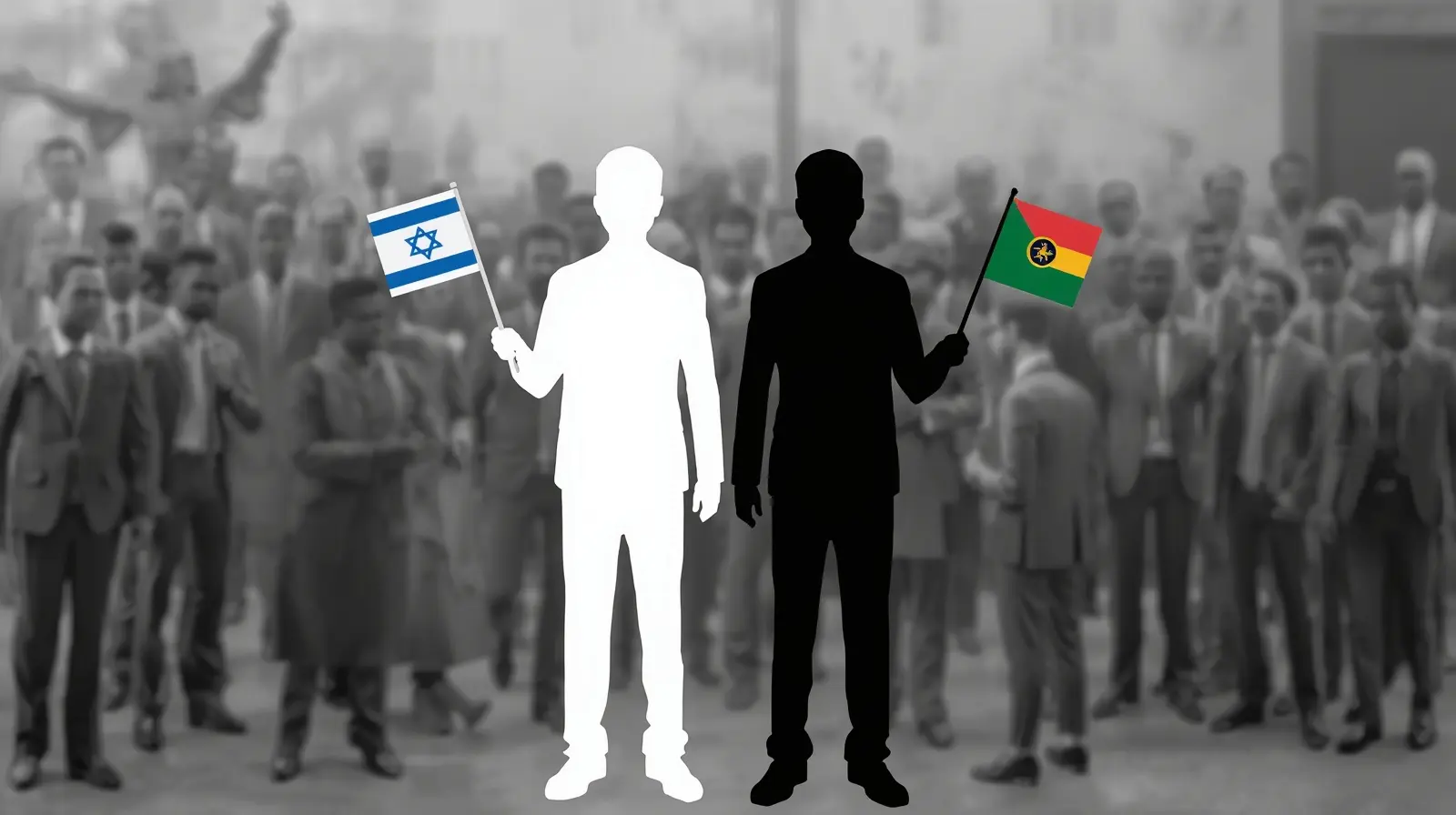Uganda Agrees to Accept Deported Migrants from the U.S., Sparking Human Rights Concerns
KAMPALA, Uganda (AP) has struck a preliminary deal with the United States to accept migrants facing deportation, the Ugandan Ministry of Foreign Affairs says. Under the agreement, the migrants must have no criminal records and cannot be unaccompanied minors. While the essential framework is in place, officials advise that finer points are still being hammered out.
The ministry indicated that Uganda prefers migrants from African countries. It did not clarify whether those from outside Africa would be accepted, nor did it specify what Uganda might gain in return for hosting the deportees.
“The agreement has been signed but the specifics are still being finalized,” the ministry announced Thursday.
U.S. Diplomatic Position
The U.S. Embassy in Kampala would not comment on the discussions, calling them “diplomatic negotiations.” The embassy did say that American diplomats are working to enforce President Donald Trump’s policy of protecting Americans, a policy that seeks to reduce illegal immigration and ensure that foreign nationals with criminal records are deported in an orderly manner.
Later, the U.S. State Department confirmed that Secretary of State Marco Rubio had spoken by phone with Ugandan President Yoweri Museveni. According to the department, their discussion covered migration, mutual trade, and business ties. Rubio called Uganda “a model of regional stability” and praised its role in peacekeeping missions across East Africa.
The Trump administration has placed migrant deportation at the center of its domestic security strategy. The goal is to discourage unauthorized entry and to deport people with criminal records, especially when their home countries refuse to accept them back.
Criticism from Human Rights Groups
Human rights groups have raised alarms about the Uganda-U.S. deportation pact, warning that it may breach international law and trap migrants in uncertain legal situations.
Nicholas Opio, a Ugandan human rights lawyer, compared the proposed refugee deal to human trafficking. He emphasized it puts human beings on the bargaining table instead of safeguarding their rights. “Are they refugees or prisoners?” Opio asked. “The deal clearly violates international law. We are trading people for political gain—Uganda appeasing the United States to gain favor.”
Opposition lawmaker Muwada Nkunyingi voiced the same fears. He warned the Ugandan government might rush the deal to polish its image before the 2026 elections. “Leaders here will sign anything to tidy the record,” Nkunyingi said. He urged Washington to remember Uganda’s long history of human rights abuses and ongoing governance failures.
Questions are also growing about how deportees will be treated. Recent U.S. deportation flights to the region offer troubling examples. In July, the United States sent five men with criminal records to Eswatini and eight to South Sudan. Those sent to Eswatini are now reportedly in solitary confinement, waiting months—possibly up to a year—before they can be sent back to their home countries.
A recent U.S. court case stopped eight deportations to South Sudan, but a Supreme Court ruling later allowed the flights to take off. This back-and-forth shines a light on the tricky legal and ethical questions that pop up when governments move people back to countries where they may be at risk.
Tensions Between Uganda and the United States
Uganda and the U.S. have not been on the same page lately, mainly because of human rights. When Uganda passed a strict anti-homosexuality law in 2023, making same-sex acts punishable by life in prison, Washington reacted with sharp words. U.S. lawmakers promised to punish Uganda, and the World Bank put future loans on hold.
In May 2024, the U.S. went a step further, slapping sanctions on Uganda’s parliament speaker, her spouse, and several lawmakers. The charges were corruption and serious human rights violations. Against this backdrop, the agreement to send deportees back to Uganda suggests that Uganda’s readiness to take back migrants may be linked to a bigger deal involving money, trade, and human rights.
The Ugandan Government’s Position
Despite widespread media claims of a finalized agreement, Uganda’s Minister of State for Foreign Affairs, Henry Okello Oryem, earlier rejected the idea of a formal contract. He acknowledged that talks continue over “visas, tariffs, sanctions, and related issues” but insisted Uganda will never receive migrants tied to organized crime.
“We’re dealing with cartels—people rejected in their own nations. How do we weave them into our communities?” Oryem remarked.
On Thursday, Oryem and other officials chose not to elaborate on the talks’ current status.
Migration, Security, and Regional Stability
Uganda has long prided itself on being a safe center for East Africa, providing refuge to those fleeing South Sudan, the Democratic Republic of Congo, and Somalia. Accepting U.S. deportees could be seen as extending that leadership, but human rights advocates caution it could plunge the country into a humanitarian and legal crisis.
International law prohibits countries from sending deportees back to places where they might be tortured or persecuted. The Uganda–U.S. arrangement faces pushback because it could push vulnerable people close to a refoulement risk if there aren’t strong follow-up checks and solid resettlement pathways.
Wider Consequences
This deal is also a turning point for U.S. immigration strategy. The Trump White House has pushed for tougher enforcement and for deportees to face real-world consequences for illegal border crossings or for committing crimes. By shifting part of the deportation load to Uganda, the U.S. can work around the legal and practical hurdles that pop up when a deportee’s home nation won’t, or can’t, take them back. Still, opponents say the strategy feels like shipping human rights risks overseas. They worry Uganda and similar partners might not have the legal framework, public services, or community networks needed to protect deportees once they arrive.
Geopolitical Context
This agreement carries important geopolitical weight. By partnering with Washington to return individuals to Uganda, the government could deepen its diplomatic ties with the U.S. Such cooperation might cushion Uganda against sanctions and the steady drumbeat of critiques on governance and human rights. However, agreements like this risk sparking domestic backlash, especially from activists and opposition lawmakers who question the country’s moral duties to the people affected.
Legal and Ethical Concerns
Experts on human rights insist that any deportation accord must align with international refugee norms, the Geneva Conventions, and broader human rights standards. The murky classification of the individuals—whether seen as detainees, ordinary migrants, or recognized refugees—creates significant legal uncertainty.
“The agreement could become a slippery slope,” analyst Opio warned. “If we accept returnees lacking safety guarantees, we normalize harmful practices against vulnerable groups.”
Civil society groups demand clear, open systems to verify how deported people are treated, arguing that without this safeguards, the plan risks becoming political short-termism that disregards human dignity.
The Path Forward
Negotiators are working to wrap the accord before Uganda’s 2026 elections, hoping it will polish the ruling party’s international image. Still, major uncertainties linger around how returnees will be reintegrated, how their rights will be monitored, and what support systems will be available once they are back on Ugandan soil.
Critics argue that Uganda’s current refugee systems may struggle to absorb deportees, especially if they arrive with non-African nationalities or complicated immigration histories. These systems were designed for voluntary asylum seekers, not large groups arriving suddenly.
For the United States, cooperating with Uganda is a practical way to bolster migration enforcement, but the move raises serious legal and ethical questions. How deportees are treated will shape global views of U.S. foreign policy and its stated commitment to human rights and migrant protection.
Conclusion
Uganda’s willingness to accept deported individuals from the U.S. illustrates the tangled relationship between migration control, diplomacy, and human rights. The arrangement may deliver short-term political and strategic gains for both nations, yet watchdog groups warn that any lax safeguards could breach international law and endanger deportees’ safety and dignity.
As talks advance, international observers will monitor whether the deal reconciles security goals with humanitarian responsibilities, or whether short-term political gains continue to overshadow human rights obligations. The Chrono Post



